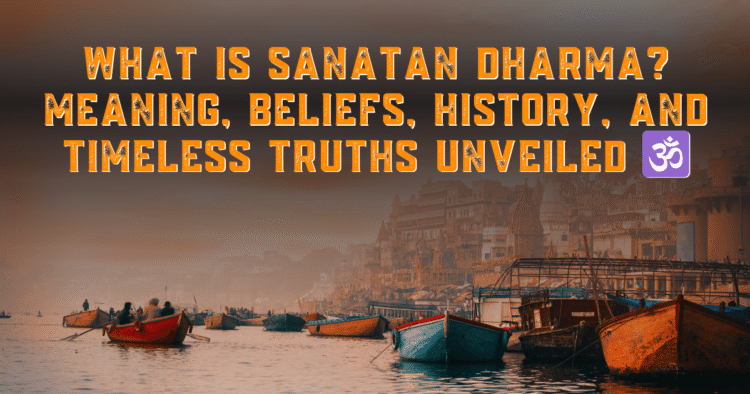In the fast-paced 21st century 🌏 — where technology evolves daily, trends come and go, and societies redefine themselves constantly — one ancient, profound question echoes louder than ever: What is Sanatan Dharma? 🕉️
People from every corner of the world are rediscovering ancient wisdom to bring meaning to their modern lives. Amid global uncertainty, stress, and a thirst for something deeper, this age-old concept has caught everyone’s attention. 📿✨ Whether you’re a spiritual seeker, history lover, or simply curious about India’s timeless traditions — Sanatan Dharma is something you’ll want to explore.
But what exactly does this phrase mean? How is it different from Hinduism? What are its core beliefs? And most importantly — what can we learn from it today?
In this in-depth, heart-to-heart guide, we’ll journey together through:
- The meaning and essence of Sanatan Dharma
- Its ancient origins and enduring philosophy 📜
- The principles that shape it 🔥
- Rituals and practices you can adopt in daily life 🌸
- And bust common myths you might’ve heard 🚫
By the end of this read, you’ll not only understand What is Sanatan Dharma — but you might just find new inspiration to live with purpose, peace, and inner power. Let’s dive in, friend! 🌿
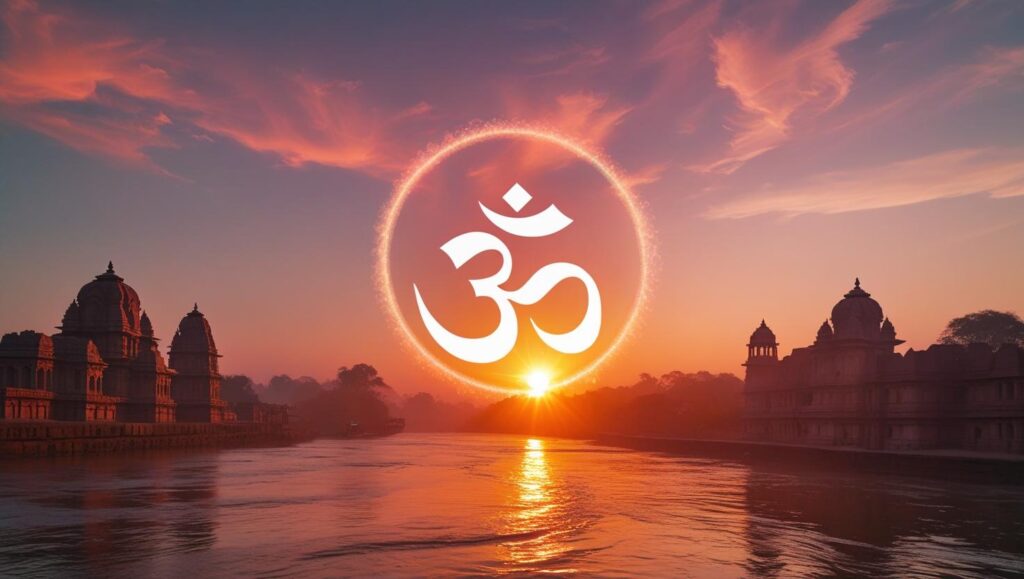
👉 If you’re passionate about Sanatan Dharma and ancient Indian wisdom, follow our official Facebook page for daily spiritual insights and timeless teachings:
🔗 https://www.facebook.com/sanatanyug.in
Table of Contents
What is Sanatan Dharma: Meaning and Etymology
Let’s first unpack what this beautiful phrase truly means…
📖 Sanatan Meaning in English and Its Deep Wisdom
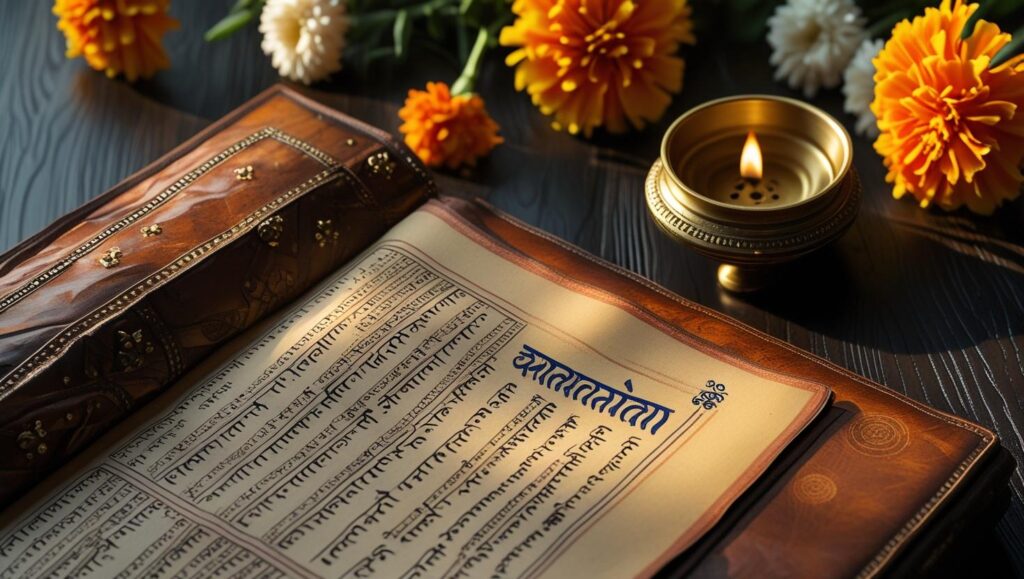
The word Sanatan is a Sanskrit term that means eternal, timeless, and unchanging. 🌞 It refers to that which has no beginning and no end — a truth that is beyond time, beyond history, and beyond any single individual’s life.
It represents the eternal cosmic laws that govern the universe, nature, and human life. These principles remain relevant no matter how much the world changes.
👉 Think of the sunrise, the cycle of seasons, or the basic laws of nature. They don’t belong to any one person, book, or culture — yet they shape all life. That’s Sanatan.
📜 Dharma Meaning & Its Importance in Sanatan Dharma
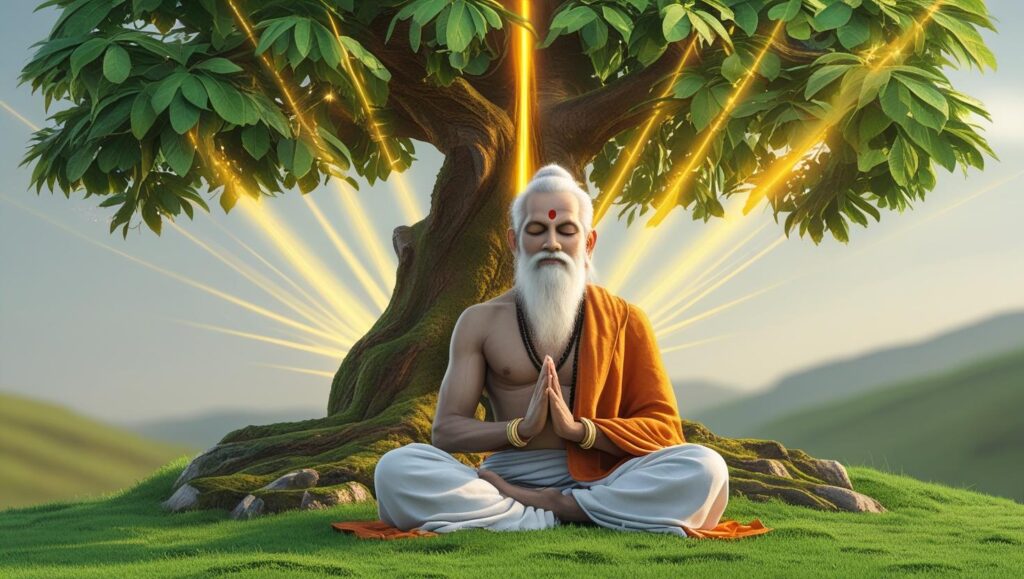
Now, the term Dharma is a bit deeper. It’s often translated as duty, righteousness, moral order, or cosmic law. But in reality, Dharma refers to the natural laws and duties each being must follow to live in harmony with themselves and the universe. 🌸
It’s about living truthfully, ethically, and purposefully — fulfilling your role in the larger cosmic plan.
📝 A famous Sanskrit quote says:
“Dharmo rakshati rakshitah” — Dharma protects those who protect it.
Meaning: When you live ethically and follow natural laws, life flows smoothly and abundantly for you.
🔍 Sanatan Dharma Meaning in Simpler Words:
So when you put them together — Sanatan Dharma meaning is “the eternal way of righteous living” 🌿.
It’s not a one-size-fits-all set of commandments, but a flexible, timeless guide to life based on truth, compassion, and universal laws.
🛕 How Sanatan Dharma Differs from Religions
One of the most beautiful and misunderstood facts about Sanatan Dharma is that it’s not a religion in the conventional sense. 🚫
👉 It’s a Way of Life
Where most religions have a single founder, prophet, or a set of fixed rules, Sanatan Dharma is a living, breathing philosophy — adapting to different ages, lands, and people while staying rooted in eternal truths.
- No single founder
- No one holy book
- No forced conversions or rigid dogmas
It offers principles for harmonious living — whether you believe in one God, many gods, or none at all.
This is why many refer to Sanatan Dharma vs Hinduism debates. Technically, Hinduism is a modern term coined by outsiders, while Sanatan Dharma is the original name of this ancient, inclusive tradition. ✅
🧘♂️ Sanatan Dharma beliefs center around:
- Truth (Satya)
- Non-violence (Ahimsa)
- Compassion (Karuna)
- Dharma (Righteous Duty)
And these values belong to all humanity — not just a particular community.
The Historical Evolution of Sanatan Dharma
Let’s take a walk through time… 📜
📖 Origins in the Vedic Period
The history of Sanatan Dharma traces back to the Vedic age — over 5000 years ago (or more, depending on interpretations). The Vedas, the oldest known scriptures of humanity, were composed by sages known as Rishis who meditated deeply and tapped into universal truths. 🌌
They documented wisdom about:
- The nature of the universe 🌞
- The meaning of life 📿
- Natural laws governing human behavior 🧭
And this knowledge formed the backbone of Sanatan Dharma.
🕉️ Vedas, Upanishads, and Epics as Foundations
The role of Hindu scriptures in shaping Sanatan Dharma is profound. 📚
- The Vedas laid down sacred chants and rituals.
- The Upanishads offered deep philosophical discussions on the soul (Atman) and supreme consciousness (Brahman).
- The Ramayana, Mahabharata, and Bhagavad Gita taught life’s ethical dilemmas, duties, and paths to liberation.
This vast collection of ancient Indian wisdom is not just religious scripture, but a universal guidebook on how to:
- Handle family challenges
- Manage emotions like anger and greed
- Cultivate peace and purpose
The texts often say — 🌱
“As long as there are rivers, mountains, and skies — Sanatan Dharma shall remain.”
And remarkably, these teachings are still practical in the 21st century!
Let’s continue our journey deeper into the core principles and practical practices of Sanatan Dharma in Part 2 — you don’t want to miss it! 🚀✨
Core Principles of Sanatan Dharma: The Eternal Codes of Life
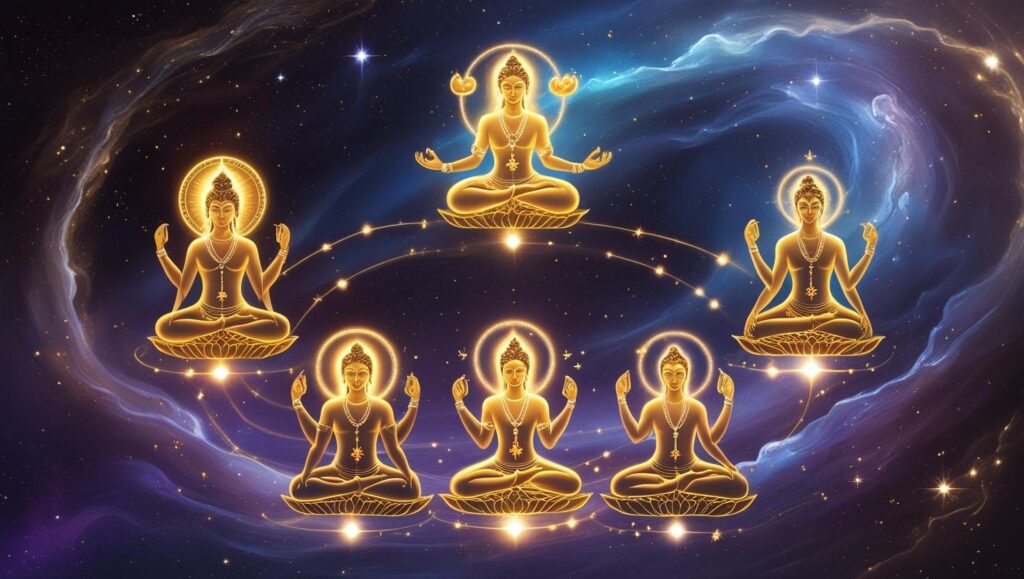
Now that we’ve uncovered its history, let’s dive into what makes Sanatan Dharma beliefs so universally relevant — even in 2025!
These timeless principles act like a spiritual GPS, guiding you through life’s chaos with clarity and calm. 🌿
📜 1️⃣ Satya (Truth)
Truth is not just about speaking honestly — it’s about living in alignment with your higher self and universal laws.
In Sanatan Dharma:
- Truth is eternal (unchanging across eras)
- It exists beyond religions, books, or cultures
- It is the path that frees you from fear and ignorance ✨
🕉️ As the Upanishads say:
“Satyameva Jayate” — Truth alone triumphs.
✌️ 2️⃣ Dharma (Righteous Duty)
Dharma is often misunderstood as religion. But in reality, it means your rightful duty in any situation — to yourself, your family, society, and nature. 🌱
Your Dharma isn’t fixed for everyone. A soldier’s Dharma is to protect. A teacher’s Dharma is to share knowledge. A doctor’s Dharma is to heal.
📝 The Bhagavad Gita teaches:
“It is better to do your own Dharma, imperfectly, than another’s perfectly.”
Powerful, right? 🔥
☮️ 3️⃣ Ahimsa (Non-Violence)
Way before Gandhi made it popular, Ahimsa was the heartbeat of Sanatan Dharma.
It means:
- No harm by thoughts, words, or actions
- Kindness to all living beings 🐄🐘🦚
- Choosing peace over conflict wherever possible
That’s why vegetarianism, yoga, and meditation became key lifestyle elements — born from this principle.
💖 4️⃣ Karuna (Compassion)
This is about cultivating a soft heart and helping hand for everyone — friend or foe.
Karuna means:
- Empathizing with others’ suffering
- Offering support without expecting returns
- Understanding that all beings are interconnected 🌍
Modern science now confirms what Sanatan Dharma taught millennia ago — compassion improves mental and physical health!
🕉️ 5️⃣ Moksha (Liberation)
The ultimate goal isn’t heaven or wealth — it’s freedom from the cycle of birth and death (Samsara).
Moksha means merging your soul (Atman) with the universal consciousness (Brahman), ending suffering forever. 🕉️✨
Paths to Moksha include:
- Jnana Yoga (Path of Knowledge)
- Bhakti Yoga (Path of Devotion)
- Karma Yoga (Path of Selfless Action)
- Raja Yoga (Path of Meditation)
Choose whichever suits your nature — no pressure, no fear. That’s the beauty of Sanatan Dharma.
🌸 Love reading about Dharma, Karma, and Vedic wisdom? Join our dedicated Sanatani community on Facebook and be part of soul-nourishing discussions:
🔗 https://www.facebook.com/groups/658817870481055
Daily Practices in Sanatan Dharma You Can Adopt Today
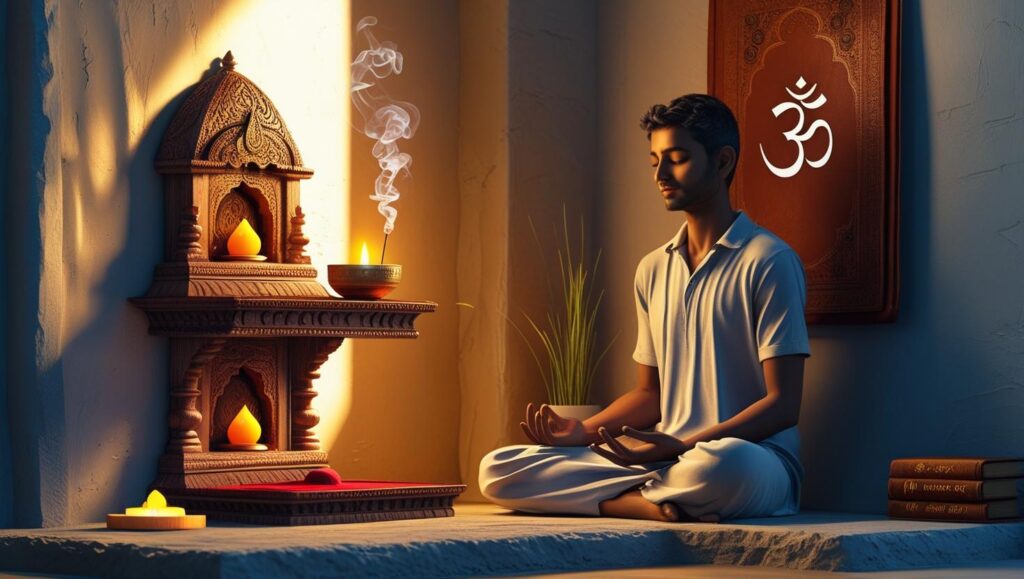
Good news — you don’t have to be a saint or yogi to experience Sanatan Dharma’s benefits. You can start small, right now. 🌞
Here’s how:
🙏 Morning Gratitude Ritual
Upon waking, mentally thank the Sun 🌞, Earth 🌍, Water 💧, Air 💨, and Fire 🔥 for sustaining life.
🕯️ Light a Diya or Incense
A simple act of lighting a lamp cleanses negative energy and welcomes peace.
🧘♂️ Practice Meditation (Dhyan)
5-10 minutes of stillness daily balances your mind and helps you reconnect with your inner self.
📿 Chant Om (ॐ)
This sacred sound calms the nervous system and aligns your energy with cosmic frequencies.
📜 Read a Shloka or Mantra
Even a single verse from the Bhagavad Gita or Upanishads can uplift your day.
🐄 Feed Animals or Birds
Compassion in action. A simple grain offering or a bowl of water can generate immense positive karma.
Misconceptions About Sanatan Dharma — Busted!
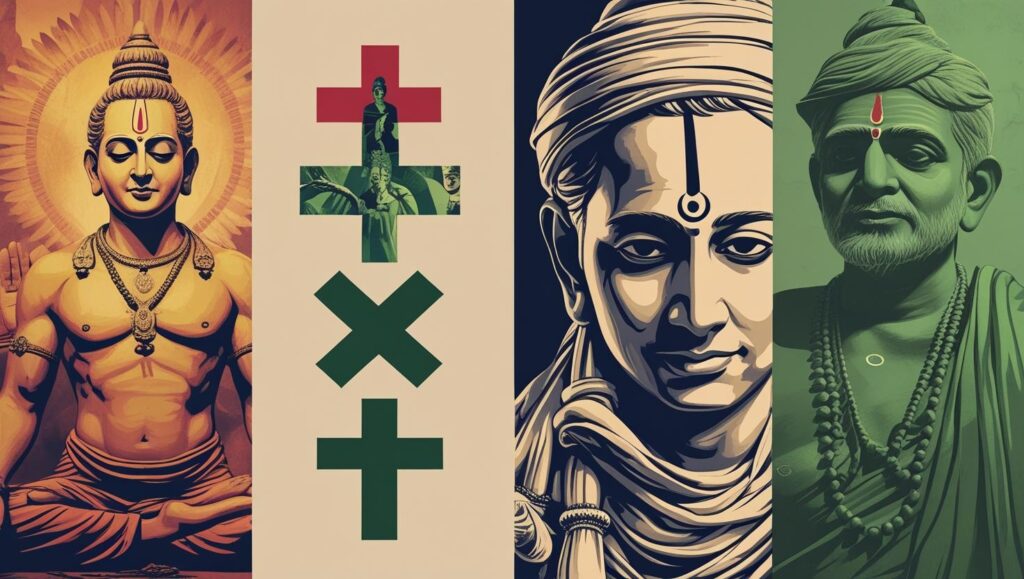
Time to clear the air on some popular myths 🚫
❌ 1️⃣ Sanatan Dharma is Hinduism
Not quite. Sanatan Dharma is the original eternal philosophy. Hinduism is a modern label given by outsiders.
❌ 2️⃣ It’s Idol Worship
No. Deities in Sanatan Dharma are symbolic forms of cosmic forces — like energies personified. It’s about respecting the elements of nature, not superstition.
❌ 3️⃣ It’s for Indians Only
Sanatan Dharma is universal. 🌍 Its principles of truth, compassion, and self-realization apply to all beings, everywhere.
Why Sanatan Dharma Matters More Than Ever in 2025

In this AI-driven, fast-paced, and often disconnected world, the wisdom of Sanatan Dharma is like a gentle, grounding embrace. 🌸
Here’s why:
- Mental health crises are at an all-time high. Sanatan Dharma’s mindfulness practices heal anxiety and depression.
- Environmental disasters plague us daily. Its deep respect for nature promotes sustainable living.
- People are spiritually lost. Its philosophy offers purpose without dogma.
As India rises globally, more youth and thinkers worldwide are rediscovering this ancient wisdom to live more meaningful, balanced, and conscious lives. ✨
Final Thoughts: Is Sanatan Dharma the Answer to Modern Chaos?
If you’ve ever felt like:
- Modern life lacks meaning
- You crave inner peace
- You want to reconnect with nature, community, and yourself
Then exploring Sanatan Dharma’s meaning, beliefs, and history can be life-changing. 🌿🕉️
It’s not about converting, but remembering eternal truths already within you.
As the great sage Swami Vivekananda said:
“Each soul is potentially divine. The goal is to manifest this divinity within.”
Sanatan Dharma is your personal guidebook to that divinity. 📜✨
Would You Like to Read More on Sanatan Dharma’s Secrets?
Let us know in the comments! Should we cover:
- Lesser-known ancient practices?
- How Sanatan Dharma views Karma and Rebirth?
- The science behind Vedic rituals?
Drop your thoughts below — and don’t forget to share this post with your spiritually curious friends! 📲✨
Final Sanatan Dharma Mantra to Close This Read
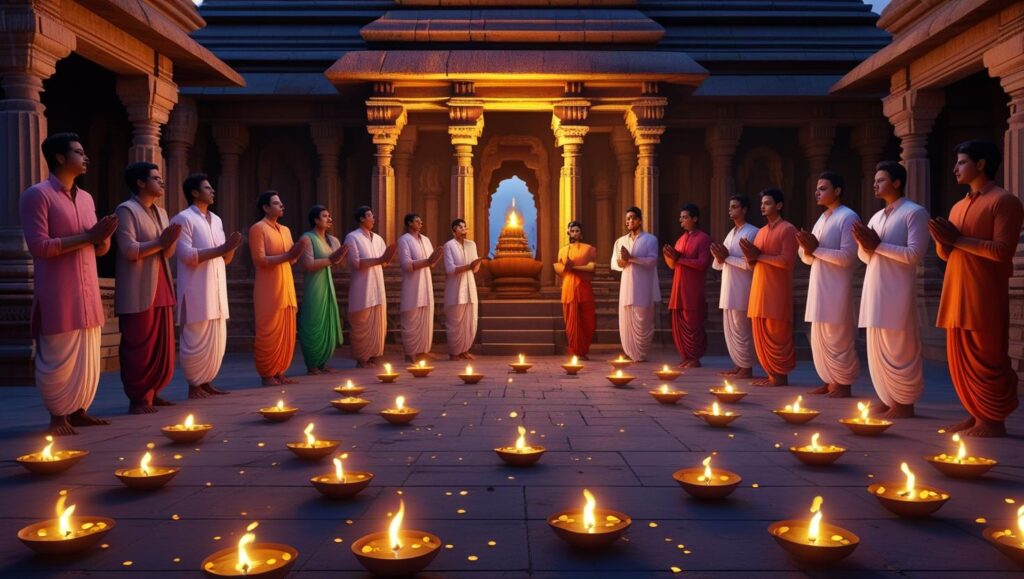
Let’s end with a powerful Sanskrit verse together:
🕉️ “Sarve Bhavantu Sukhinah, Sarve Santu Niramayah; Sarve Bhadrani Pashyantu, Ma Kashchid Dukha Bhagbhavet.”
May all beings be happy, healthy, and peaceful. May no one suffer.
🧘♂️🌸✨
🙏 Stay connected with SanatanYug family! Follow our Facebook page for daily mantras, motivational shlokas, and ancient life lessons:
🔗 https://www.facebook.com/sanatanyug.in
📖 Frequently Asked Questions (FAQs) 🕉️✨
1. What exactly is Sanatan Dharma?
Sanatan Dharma is the eternal way of life — a timeless philosophy that teaches us how to live in harmony with nature, ourselves, and the cosmos 🌿. It isn’t limited to rituals or temples but is about embracing truth, duty, compassion, and wisdom in daily life. It’s a way of living consciously and ethically, guided by cosmic laws.
2. Is Sanatan Dharma the same as Hinduism?
Great question! 🔥 Technically, Sanatan Dharma is the original, eternal tradition from which Hinduism emerged. Hinduism is a modern term introduced much later during foreign rule, while Sanatan Dharma has no founder, no single scripture, and no rigid boundaries. It’s a universal philosophy open to anyone who values truth and righteousness.
3. What does ‘Sanatan’ actually mean?
‘Sanatan’ means eternal, ageless, and unchanging. It signifies those cosmic truths and moral values that are always relevant — no matter the century, technology, or civilization 📜. It’s about wisdom that applies equally in ancient times and in our fast-paced modern world 🌏.
4. What does ‘Dharma’ mean in Sanatan Dharma?
‘Dharma’ is not just religion or duty — it’s a deep, spiritual concept that means living in alignment with universal truth and moral order ✨. It’s about doing what’s right, being kind, protecting nature, and upholding justice. Your dharma can vary by your role — as a parent, student, or citizen — but it always leads towards goodness.
5. What are the core beliefs of Sanatan Dharma?
Sanatan Dharma believes in Karma (action and consequence), Dharma (righteous living), Rebirth, Moksha (liberation), and universal oneness 🌸. It promotes values like Ahimsa (non-violence), Satya (truth), and living with compassion for all beings. It reminds us we are part of a larger cosmic family.
6. Who is considered a true Sanatani?
A true Sanatani isn’t judged by rituals or labels — but by how ethically and truthfully one lives 🌿. Anyone who respects nature, believes in karma, upholds righteousness, and seeks spiritual growth is walking the path of Sanatan Dharma. It’s open to all humans, irrespective of caste, gender, or nationality.
7. What are some daily Sanatan Dharma practices?
Simple yet powerful practices like morning meditation 🧘, lighting a diya (lamp) 🪔, chanting mantras, reading sacred texts like Bhagavad Gita 📖, and doing selfless service are part of daily Sanatani life. Yoga, gratitude, and following your dharma with integrity also make up key daily practices.
8. How does Sanatan Dharma view other religions?
Sanatan Dharma respects all genuine spiritual paths 🙏. It believes that there are many ways to reach the ultimate truth, and all sincere seekers deserve respect. The famous Vedic quote ‘Ekam sat vipra bahudha vadanti’ means “Truth is one, sages call it by different names”. No fanaticism, just acceptance.
9. Is Sanatan Dharma scientifically relevant today?
Absolutely! 🔥 Ancient Indian wisdom spoke of atom theory, gravity, cosmology, and holistic medicine thousands of years before modern science. Concepts like yoga for mental health, Ayurveda for immunity, and sustainable living are more needed now than ever. Sanatan Dharma offers a perfect blend of science, spirituality, and sustainable wisdom 🌍.
10. How can I start living by Sanatan Dharma today?
Begin small 🌱. Start your day with gratitude, follow truth, practice kindness, and treat every being with respect. Read the Bhagavad Gita, try meditation or yoga, and reflect on your actions’ karma. Remember, Sanatan Dharma is a journey of the soul — one conscious choice at a time ✨.
🔥 Join thousands of Sanatani seekers in our official Facebook group and exchange thoughts on Dharma, Festivals, Ayurveda, and Indian traditions:
🔗 https://www.facebook.com/groups/658817870481055
